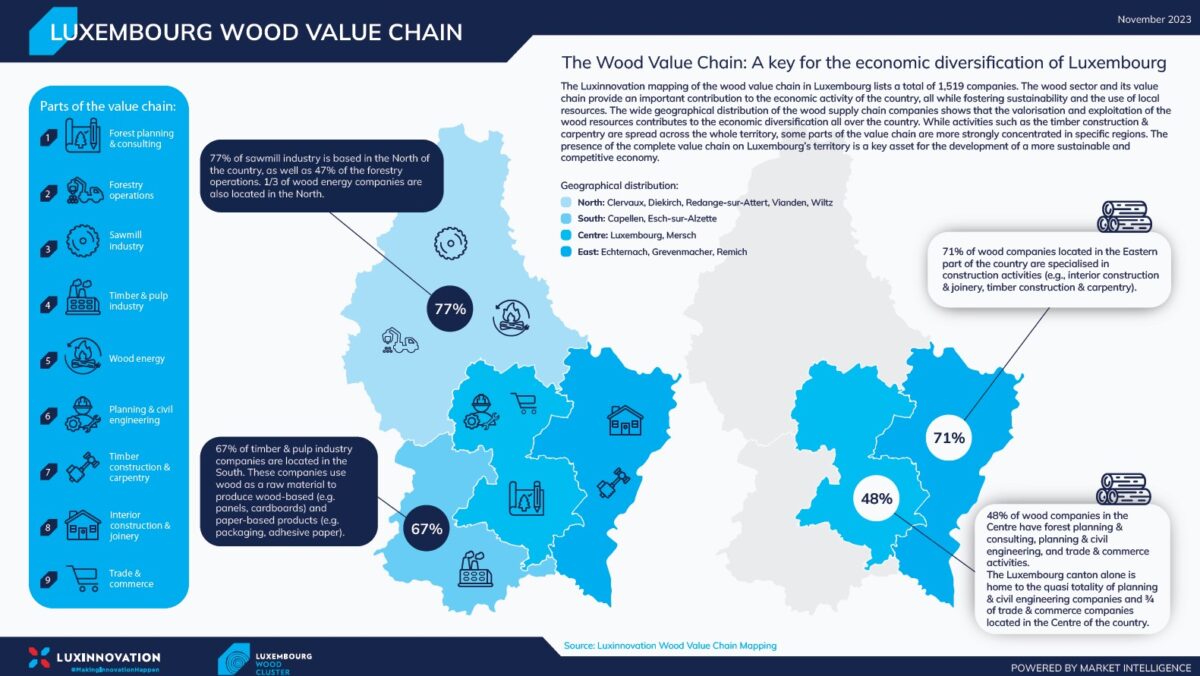

Luxembourg wood value chain (2/3): National coverage, local specialisation
The companies that make up the wood value chain are located all over Luxembourg. However, the wood ecosystem mapping by Luxinnovation shows that certain activities are concentrated in specific parts of the country.
 Lena Mårtensson
Lena Mårtensson
The 2023 edition of the wood ecosystem mapping shows that Luxembourg is home to a dynamic and growing wood value chain. An in-depth study by the Luxinnovation team shows that the number of wood companies in the northern part of the country is almost the same as that in the south. “This is a truly national ecosystem,” says Luxinnovation’s Market Intelligence Analyst Julie Gaspar.

Regional wood ecosystem specialisation
However, although the density of companies is roughly the same, they are not engaged in the same activities everywhere. The majority of sawmill companies – 77% – for example, are located in the Northern part of the country, as are almost half of forestry operations and one-third of wood energy businesses. “One reason for this is the close relationship and extensive cooperation of sawmill companies with Belgian counterparts,” explains Ralf Köhler, Luxinnovation’s Cluster Manager – Wood.
The wood ecosystem makes an important contribution to the economic activity all over Luxembourg.
67% of timber and pulp industry companies are located in the South, the most industrialised part of the country. These companies use wood as a raw material to produce wood-based and paper-based products such as cardboard, packaging and adhesive paper.
Wood companies in Eastern Luxembourg, bordering Germany to the east and France to the south, focus in particular on construction activities. Over 70% of the wood companies based in this region work in fields such as interior construction and joinery or timber construction and carpentry.
Almost half of the wood companies located in the centre of the country, which includes the capital city of Luxembourg, are active in the fields of forest planning and consulting, planning and civil engineering and trade and commerce activities.
A key economic contribution
“The wood ecosystem makes an important contribution to the economic activity all over Luxembourg,” comments Mr Köhler. “The presence of the complete wood value chain is also a key asset for developing a more sustainable and competitive economy.”







